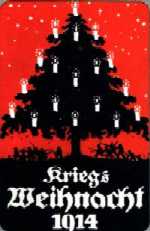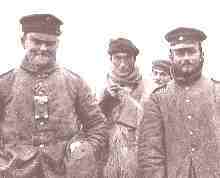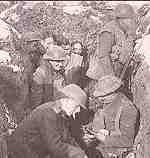Out In The Jukebox Saturday Night –Sweet Little Rock and Roller
Chuck
Berry – Sweet Little Rock 'n Roller Lyrics
Yeah, nine years old and sweet as
she can be
All dressed up like a downtown Christmas tree
Dancin? And hummin? A rock抧抮oll melody
She抯 the daughter of a well-respected man
Who taught her to judge and understand
Since she became a rock抧抮oll music fan
Sweet little rock'n'roller
Sweet little rock'n'roller
Her daddy don抰 have to scold her
Her partner can抰 hardly hold her
Her partner can抰 hardly hold her
She never gets any older
Sweet little rock抧抮oller
Should have seen her eyes when the band began to play
And the famous singer sang and bowed away
When the star performed she screamed and yelled "Hooray!"
Ten thousand eyes were watchin? Him leave the floor
Five thousand tongues were screamin? 揗ore and More!? Br> And about fifteen hundred people waitin? Outside the door
Sweet little rock'n'roller
Sweet little rock'n'roller
Sweet little rock'n'roller
Sweet little rock'n'roller
Sweet little rock'n'roller
Sweet little rock'n'roller
Sweet little rock'n'roller
All dressed up like a downtown Christmas tree
Dancin? And hummin? A rock抧抮oll melody
She抯 the daughter of a well-respected man
Who taught her to judge and understand
Since she became a rock抧抮oll music fan
Sweet little rock'n'roller
Sweet little rock'n'roller
Her daddy don抰 have to scold her
Her partner can抰 hardly hold her
Her partner can抰 hardly hold her
She never gets any older
Sweet little rock抧抮oller
Should have seen her eyes when the band began to play
And the famous singer sang and bowed away
When the star performed she screamed and yelled "Hooray!"
Ten thousand eyes were watchin? Him leave the floor
Five thousand tongues were screamin? 揗ore and More!? Br> And about fifteen hundred people waitin? Outside the door
Sweet little rock'n'roller
Sweet little rock'n'roller
Sweet little rock'n'roller
Sweet little rock'n'roller
Sweet little rock'n'roller
Sweet little rock'n'roller
Sweet little rock'n'roller
Recently Josh Breslin, my old travelling companion from the great yellow bus down the nirvana highways days out West in the late 1960s (the West is the best, get here and we will do the rest was the Jim Morrison-etched mantra driving us out there) told me, that he had, seemingly endlessly, gone back to his early musical roots, his coming of age in the 1950s golden age of rock (and mine too), now conceded even by him (me, I am agnostic on the question) to correctly carry the designation classic rock. Although Josh had his huff and puff sneaking out of the house at midnight heading via subway to Harvard Square to see if could be washed by the new breeze coming through the land folk music minute in the early 1960s that I can attest to when he later tried to foist the records off on me (you know the Village/Old Town/North Beach faded minute when all those guys and gals like Dylan/Baez/Collins/Odetta/Rush/Clancy Brothers/Van Ronk/Ochs/Paxton, Christ even old guard Pete Seeger and so on who had previously sung their hearts out for the basket in the up and coming coffeehouses and to move, or better if you believe the stories Dave Van Ronk tells, clear the beat poetry crowds to bring in a new crowd got their chance to front). Had his blues phase, you pick ‘em country or electric, after he saw Howlin’ Wolf practically eating his harmonica on How Many More Years. Had as well an outlaw country cowboy second with Waylon and Willie. And still later did a retro Duke/Count/Charlie/Dizzy retro jazz thing although he has always claimed that he was always a child of his times, a “child of rock ‘n’ roll.” I believe him if that helps.
To show his adherence to that truth Josh had spent some time reviewing various compilations of a commercially produced classic rock series that went under the general title Rock ‘n’ Roll Will Never Die. That task was not as easy as it would seem since those commercial interests have tapped into their demographic pool and have caught our generation, the generation of ’68 in a nostalgic mood, or in a retro- buying mood. Ready to buy fifteen volume sets just to get maybe thirty gems (if they have not caught onto iTunes or YouTube, an iffy proposition for our generation just on the edge of needing to be computer literate). So there are many (although with a fair amount of overlap) compilations out there honing in on the “oldies but goodies” bug that has infiltrated the AARP-worthy set. He has noted that while time and ear have eroded the sparkle of some of the lesser tunes, you know novelty stuff like Purple People-Eaters or goof things like Who Wears Short Shorts, it still seems obvious that those years, say 1955-58, really did form the musical jail break-out for our generation who had just started to tune into music. (We have talked a great deal about the various failures, one hit johnnies and janies, and the “never should haves,” although I hope not endlessly.)
I had to laugh when Josh explained his take on the scene back then. We had our own little world, or as some hip sociologist trying to explain that Zeitgeist today might say, our own “sub-group cultural expression.” I, Josh too maybe since we are working to mine the same memoires lately, have already talked about the pre 7/11 mom and pop corner variety store hangout with the tee-shirted, engineered-booted, cigarette (unfiltered, of course Luckies preferred) hanging from the lips, Coke, big- sized glass Coke bottle at the side, pinball wizard guys thing. And about the pizza parlor jukebox coin devouring, playing some “hot” song for the nth time that night, “hold the onions I might get lucky tonight,” dreamy girl might come in the door thing. Of course, the soda fountain, and…ditto, dreamy girl coming through the door thing, merely to share a sundae, natch. And the same for the teen dance club, keep the kids off the streets even if we parents hate their damn rock music, the now eternal hope dreamy girl coming in the door, save the last dance for me thing.
Needless to say you know more about middle school and high school dance stuff, including hot tip “inside” stuff about manly preparations for those civil wars out in the working- class neighborhood night, than you could ever possibly want to know, and, hell, you were there anyway (or at ones like them). Moreover, I clued you in, and keep this quiet, about sex, or rather I should say “doin’ the do” in case the kids are around, and about the local “custom” (for any anthropologists present) of ocean-waved Atlantic “watching the submarine races.”
That is maybe enough memory lane stuff for a lifetime, especially for those with weak hearts. But, no, your intrepid messenger Josh felt the need to go back indoors again and take a little different look at that be-bop jukebox Saturday night scene as it unfolded in the late 1950s and early 1960s. The jukebox scene where we usually heard some sounds for the first time and we either worked out some deal to buy the record at Smitty’s Record Shop up in Adamsville Square or cadged nickels and dimes to endlessly play the tune until it got worn out (or we got worn out hearing it and therefore moved on). Hey, you could have found the old jukebox in lots of places in those days. Bowling alleys, drugstores (drugstores with soda fountains- why else would healthy, young, sex-charged high school students go to such an old-timer-got-to-get medicine-for-the-arthritis place. Why indeed, although there are secrets in such places that I will tell you about some other time when I’m not jazzed up to talk about Josh be-bop juke-boxing around the town), pizza parlors, drive-in restaurants, and so on. Basically any place where kids were hot for some special song and wanted to play it until the cows came home. And had the coins to satisfy their hunger.
Josh said a lot of it was to kill time waiting for this or that, although the basic reason was these were all places where you could show off your stuff, and maybe, strike up a conversation with someone who attracted your attention as they came in the door. I agree with the latter point although the real killing time didn’t come until we hit the Army, and later. Here is where Josh showed me he was not kidding about his devotion to classic rock when one night at a local bar in Cambridge he showed me the cover artwork on one compilation showed dreamy girls waiting around the jukebox for their platters (records, okay) to work their way up the mechanism that took them from the stack and laid them out on the player. That said to me “There is your chance, boys, grab it,” like in the old days. See these were girls just hanging around the machine. Some cashmere-sweatered, beehive-haired (or bobbed, kind of), well-shaped brunette (or blond, but I favored brunettes in those days) chatting idly was worth at least a date if you moved fast or, more often, a telephone number to call. Not after nine at night though or before eight because that was when she was talking to her boyfriend. Lucky guy, maybe.
But after looking at that artwork (worthy of Edward Hooper, for the clear visual message it sent, believe me) I reminded Josh where the real skill came in. That was when you were just hanging casually around the old box, especially on a no, or low, dough day waiting on a twist (slang for girl in our old working- class neighborhood) to come by and put her quarter in (giving three or five selections depending what kind of place the jukebox was located in) talking to her friends as she made those selections. Usually the first couple were easy, some now faded old boyfriend memory, or some wistful tryst remembrance, but then she got contemplative, or fidgety, over what to pick next. Then you made your move-“Have you heard Only You?” NO! “Well, you just have to hear that thing and it will cheer you right up.” Or some such line.
Of course, you wanted to hear the damn thing. But see, a song like that (as opposed to Chuck Berry’s Sweet Little Rock and Roller, let’s say) showed you were a sensitive guy, and maybe worth talking to … for just a minute, before the “I got to get back to my girlfriends, etc., etc.” line came at you. Oh, jukebox you baby. And guess what. On that self-same jukebox you were very, very likely to hear some of the songs on the compilation Josh showed me. Let me mention the stick outs (and a few that worked some of that “magic” mentioned above on tough nights). The other “has beens” you don’t have to waste your time on:
Oh Julie, The Crescendos (a great one if you knew, or thought you knew, or wanted to believe that girl at the jukebox’s name was Julie); Lavender Blue, Sammy Turner (good talk song especially on the word silly dilly billy word play); Sweet Little Rock and Roller, Chuck Berry (discussed above, and worthy of consideration if your tastes ran to those heart-breaking little rock and rollers. I will tell you about the ONE time it came in handy for me sometime); You Were Mine, The Fireflies; Susie Darlin’, Robin Luke (ditto the Julie thing above); Only You, The Platters (keep this one a secret, okay, unless you really are a sensitive guy). So, yeah, Josh is a “child of rock ‘n’ roll” in good standing. How about you?
[You should know one thing
about Josh, and it is as true of him today as it was in Big Sur or down in
LaJolla when we were running the yellow brick road out West. Once he gets onto
something he will see it through until the end. That is the case with his
recent passion to remember his “child of rock ‘n’ roll” youth. I mentioned, I
think, that he had just completed a review of the multi-volume Rock ‘n’ Roll Will Never Die series that
he had shown me one compilation from, the one with the girls hanging around the
jukebox waiting, waiting for something.
Well there are many
compilations out there (and as Frank will gladly tell you there is a fair
amount of overlap between competing sets) but what Frank is looking at now is
the series titled The Golden Age of Rock.
When he mentioned that one night when we were sitting on a couple of
barstools at Rich’s, the “oldies but goodies” place in downtown Boston, having
a drink he also added that he thought that I should assist him in future
efforts since I was a member in good standing of that generation as well. It
took all my persuasive powers to disabuse him of the notion that I needed to
hear about two hundred, maybe three hundred songs, many which I did not like,
in order to get that maybe thirty gems that I, we, died for back then. So I
turned him down but when I got home I thought if the artwork was as good at
jogging the memory as that jukebox scene, well, maybe…]




 Join us on
Join us on





 Battle of Loos in 1915:
Battle of Loos in 1915:




.jpg)